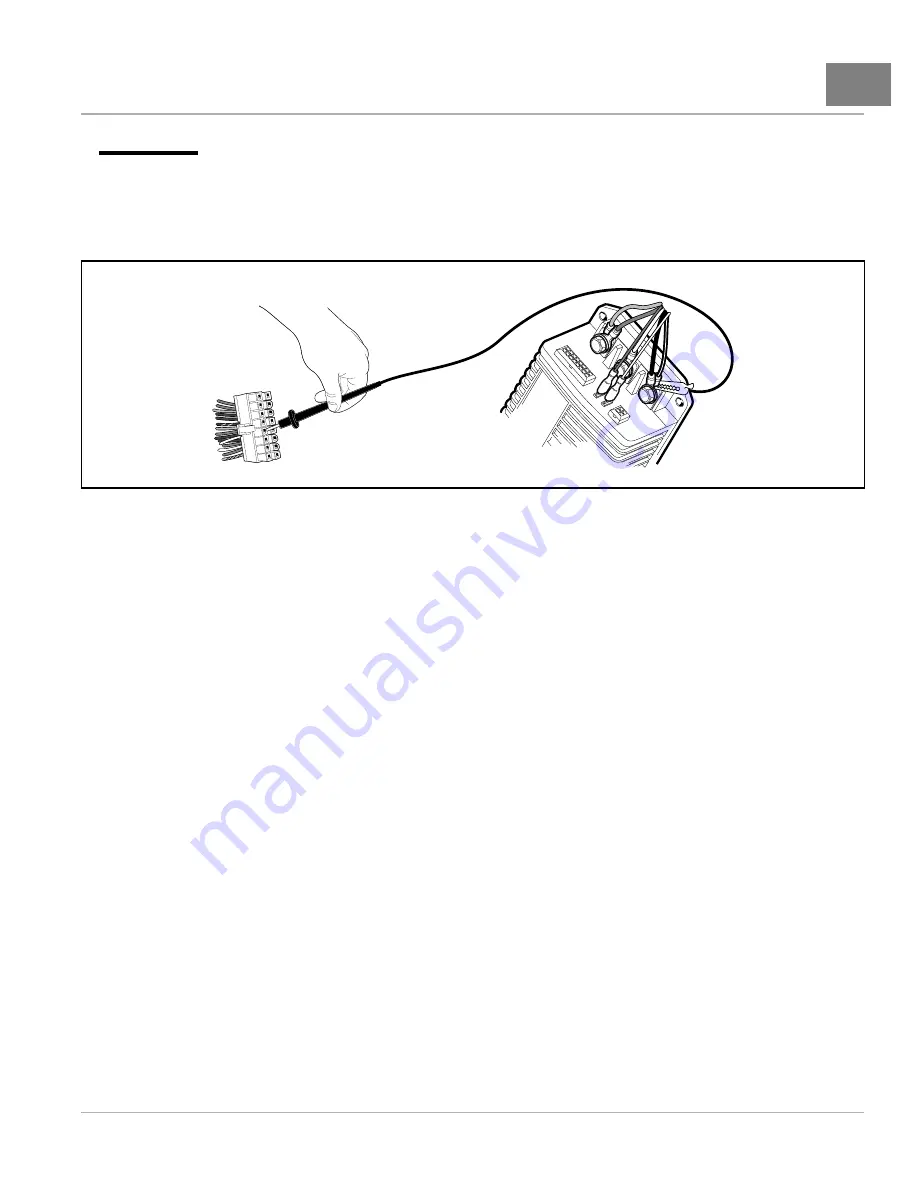
IQ SYSTEM TROUBLESHOOTING
Test Procedures
11
CAUTION
• Do not fully insert probes into the 16-pin plug. Doing so can result in a poor connection.
5.
Place the Tow/Run switch in the TOW position and connect the battery cables, positive (+) cable first. Tighten
battery terminals to 110 in-lb (12.4 N·m).
6.
Place the Tow/Run switch in the RUN position and the key switch in the ON position.
692
Figure 11-16
Pin 12 Test
7.
The solenoid should click when the key switch is placed in the ON position.
8.
If any other activity is observed, check the following items:
– Continuity of the wires in the wire harness
– Reverse buzzer for proper operation.
See Test Procedure 24 – Reverse Buzzer on page 11-33.
– Tow/Run switch for proper operation.
See Test Procedure 6 – Tow/Run Switch on page 11-17.
– Key switch for proper operation.
See Test Procedure 8 – Key Switch and Throttle Position Sensor Limit
Switch Circuit on page 11-20.
– Solenoid for proper operation.
See Test Procedure 22 – Solenoid Continuity on page 11-32.
TEST PROCEDURE 18 – Onboard Computer Silicon-Controlled Rectifier (SCR) Circuit
See General Warnings on page 1-1.
The silicon controlled rectifier (SCR), located inside the onboard computer, acts as a switch on the negative side
of the circuit.
This allows the onboard computer (OBC) to control the battery charging current.
Use the following procedure to test the SCR:
1.
With batteries connected and using a multimeter set to 200 volts DC, place the red (+) probe on the positive post
of battery no. 1 and place the black (–) probe on the charger receptacle socket that has the black 10-gauge wire
attached to it. The reading should be approximately 36-42 volts.
2.
If the reading is zero volts, check the black 10-gauge wire connection to the OBC connector. Check the continuity
of the black 10-gauge wires. If the wires and connections are okay, the SCR has failed. Replace the OBC. If
the reading is correct, proceed to the following step.
3.
Plug in AC and DC cords. When the battery charger relay clicks on, reading should be approximately 48 volts
(full battery voltage). If the reading does not rise from approximately 40 volts to full battery voltage when the
DC cord is plugged in and the relay clicks on, check the following items:
2009 Electric Precedent Maintenance and Service Manual
Page 11-29












































